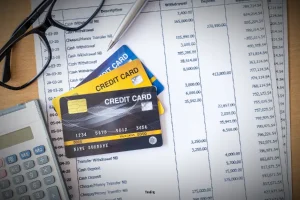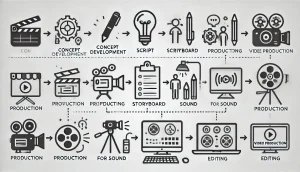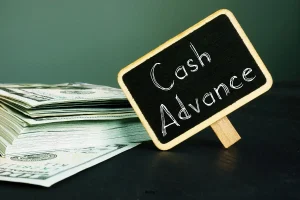Debt Consolidation 101: Understanding the Basics
Are you struggling to keep up with multiple debts and feel like your finances are spiraling out of control? Many people across the globe are facing similar challenges due to large amounts of debt, and it can be a daunting task trying to manage it all. This is where debt consolidation comes into play as a potential solution.
But before diving into the details, you must have a solid understanding of this concept and how it works. Let’s get started on demystifying one of the most popular methods for managing debt: debt consolidation!
What Is Debt Consolidation?
Debt consolidation is a strategy that involves combining multiple debts into one, typically with a lower interest rate. The principle behind debt consolidation is to simplify debt repayment by eliminating the hassle of dealing with several creditors and different monthly payments.
When you choose to consolidate your debts, you can potentially lower the interest rate on your loans, reduce monthly payments, and pay off your debt faster. This strategy can also help you avoid missing payments and damaging your credit score.
Seek Professional Advice
When managing your finances, seeking professional advice can be incredibly beneficial. A financial advisor can help you determine the best approach based on your individual circumstances, taking into account factors like your income, expenses, debt, and future goals.
For those dealing with payday loans, a financial advisor can negotiate with creditors to reduce the overall amount you owe and consolidate your debt into one manageable payment. Professionals like solidgroundfinancial.org specialize in debt consolidation services and can provide personalized solutions to help you get out of debt and regain control of your finances. Even for personal loans and credit card debts, an advisor can guide you in selecting the best consolidation loan options available to suit your needs.
List Types of Debt That Can Be Consolidated
Debt consolidation is not limited to a specific type of loan or debt. In general, any unsecured debts can be consolidated, such as credit card debt, personal loans, medical bills, and payday loans. Let’s take a closer look at each.
Credit Card Debt
Credit card debt is one of the most common types of debt that people consolidate. This is because credit cards often have high-interest rates, and missing payments can quickly lead to a cycle of increasing debt. When you choose to consolidate your credit card debt, you can potentially lower your interest rate and make it more manageable to pay off.
Personal Loans
Personal loans are another type of unsecured debt that can be consolidated. These loans are typically used for a variety of purposes, such as paying off medical bills or financing a significant purchase. Consolidating personal loans can reduce the stress of managing multiple payments and potentially save you money on interest.
Medical Bills
Medical bills are often unexpected and can create a significant financial burden for individuals and families. Consolidating medical bills can help you lower interest rates and avoid damaging your credit score by missing payments.
Payday Loans
Payday loans are short-term, high-interest loans that are often used as a last resort for individuals who need quick cash. However, these loans can quickly become unmanageable due to their high interest rates. Consolidating payday loans can provide relief by reducing the overall amount owed and creating a more manageable payment plan.
Secured debts like mortgages and car loans cannot be consolidated through traditional methods. In these cases, refinancing or taking out a second mortgage may be a better option.
Assess Financial Benefits
The financial benefits of debt consolidation can be substantial, but it’s essential to evaluate the specifics of your situation to ensure it’s the right choice for you. One of the primary advantages is the possibility of a reduced interest rate, which can lead to significant savings over time. If you consolidate your debts, you may also simplify your monthly budgeting process as you’ll only need to make one payment instead of multiple. This streamlined approach is sure to avoid the confusion of juggling various payment dates and amounts while reducing the chance of incurring late fees at the same time.
Timely and consistent payments on a consolidated loan can positively impact your credit score, which is immensely beneficial for your long-term financial health. Note that debt consolidation might extend your repayment period, which means you could pay more in total interest over the life of the loan if not carefully managed.
Consider Credit Impact
As you might know by now, many people turn to debt consolidation as a solution. But what impact does debt consolidation have on your credit score? Well, the answer is not a straightforward one. Debt consolidation can potentially have both positive and negative effects on your credit score. On one hand, if you consolidate multiple debts into one, you could potentially improve your credit utilization ratio, which is a factor that makes up 30% of your credit score. On the other hand, if you close multiple credit accounts, it could negatively impact the length of your credit history, which is another factor that makes up 15% of your score.
The overall impact on your credit score will depend on how well you manage your consolidated loan. If you make timely payments and keep a low balance, it can positively affect your score over time. If you miss payments or rack up high balances again, it could have a negative impact.
Understand the Terms and Conditions
Carefully examining the terms and conditions of a debt consolidation loan is critical before making a commitment. This due diligence ensures that you fully understand the repayment schedule, interest rate, fees, and any penalties associated with early repayment or missed payments.
Compare different loan offers, pay close attention to the annual percentage rate (APR), and make sure you’re getting the best deal possible. A lower monthly payment might seem appealing, but if it comes at the expense of a prolonged repayment period, you could end up paying more in the long run.
Some loans might offer an introductory rate that can dramatically increase after the initial period, impacting your ability to afford the payments. Before proceeding, confirm that the benefits of consolidation outweigh any drawbacks that could arise from the specifically outlined loan term
Before embarking on the journey of debt consolidation, step back and reflect on your financial habits and goals. Consolidation could be a valuable tool in regaining financial stability, but it is not a cure-all. It requires discipline, planning, and a commitment to avoid falling back into debt.
Be sure to maintain a budget, keep your spending in check, and put extra funds toward your consolidated loan whenever possible to shorten the life of the loan and reduce interest costs. With the right approach and resources, you can work towards a debt-free future and bring your financial dreams to fruition.








